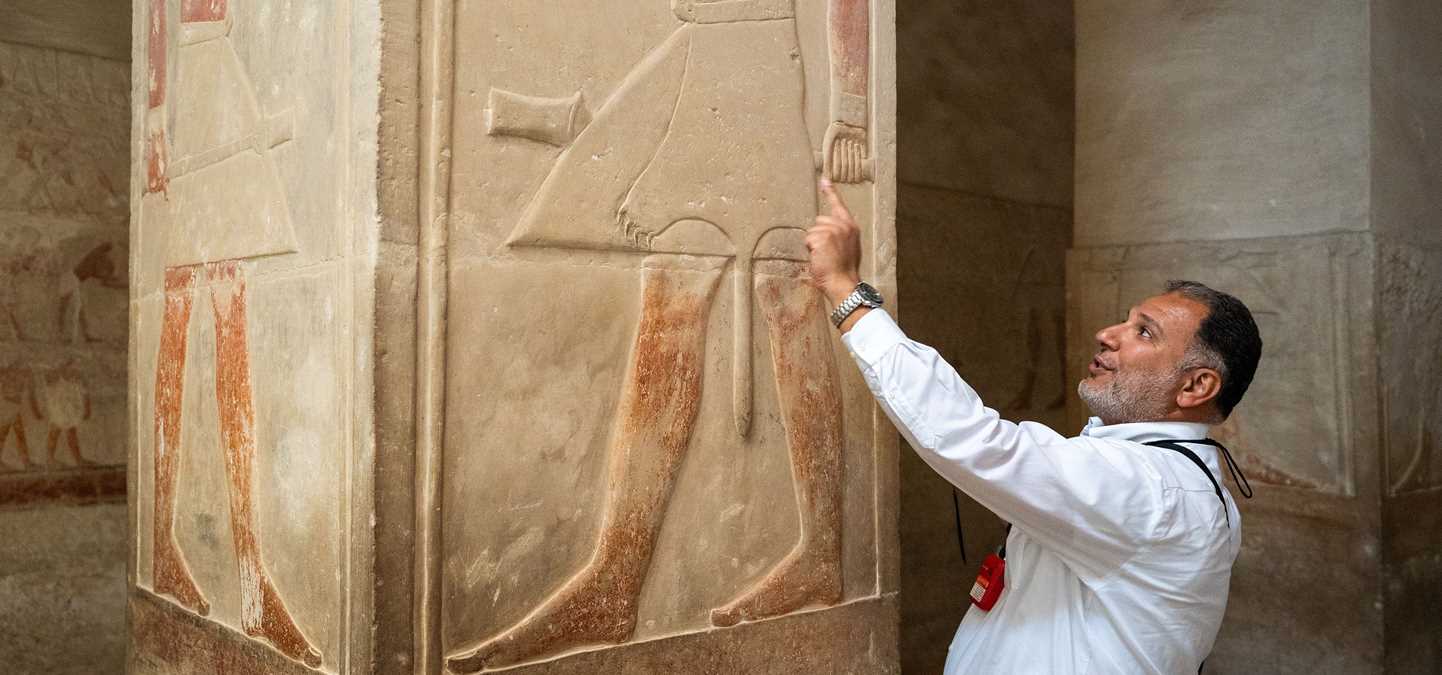Cultural
Cultural Specialists
Some of our voyages bring us deep into other cultures, where we have the chance to take part in local traditions and get a firsthand view of another way of life. In those places, we rely on our cultural specialists to interpret everyday customs and help us make meaningful connections with people we meet in our destinations. They may be archaeologists or anthropologists who can illuminate ancient civilizations in the Mediterranean or island cultures in the South Pacific.
Others are art historians or ethnomusicologists who give us a closer look at the rich artistic heritage of a destination through informative talks, guided tours, and concerts. All of them have spent time immersed in the regions they are exploring—and some of them were born and raised there.
Often, we will welcome a local expert on board to offer insights and a personal perspective—such as a resident artist or a Tlingit cultural interpreter who sheds light on Alaska’s Indigenous traditions.
Some of our voyages bring us deep into other cultures, where we have the chance to take part in local traditions and get a firsthand view of another way of life. In those places, we rely on our cultural specialists to interpret everyday customs and help us make meaningful connections with people we meet in our destinations. They may be archaeologists or anthropologists who can illuminate ancient civilizations in the Mediterranean or island cultures in the South Pacific....
Read more
Meet our Cultural Specialists
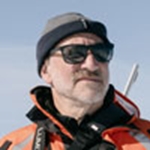
Daniel Odess
Dan Odess is an archaeologist with extensive experience conducting research in Alaska, northern Canada, and arctic Russia. His work focuses on how people have met the challenges of living in extreme environments, including: what they ate and how they procured it, how they organized their technology, their social strategies, and what it meant to colonize a place where nobody had ever lived before. In addition to his work in the Arctic he is part of the team that recently discovered ancient tracks at White Sands National Park, currently the oldest solid evidence for humans in the Western Hemisphere. His approach to research is multidisciplinary, involving collaboration with Indigenous people, paleoecologists, biologists, paleontologists, physicists, and geologists. He is keenly interested in how the knowledge of Indigenous people can inform our understanding of the past and how in turn, the study of the past can help inform the decisions we and they face today. Dan is a natural teacher, with great enthusiasm for archaeology and the Arctic, and is a firm believer that far more can be learned and taught in the field than in the classroom. He has held a variety of academic and government positions including Professor of Anthropology and Curator of Archaeology at the University of Alaska, and Chief Scientist for the U.S. National Park Service.
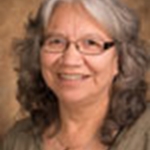
Linda Tollas
Linda (Gaajiiaawa) is of the Skedans Raven clan and lives in Skidegate, Haida Gwaii with her husband. She is a proud mother and grandmother to two sons, five grandchildren and twin great-granddaughters. Aside from a 25-year period, Linda has lived her whole life in Haida Gwaii. She and her husband returned in 1997. They spent two summers as Watchmen, protecting and educating visitors about her ancestral village of Skedans. Her passion for learning and her communication and leadership skills made her a natural Cultural Heritage interpreter. She worked for 14 years in this capacity with Gwaii Haanas National Park Reserve and Haida Heritage Site, educating diverse audiences about Haida culture and ethnobotany. Linda provided guided hikes of the forests and evening slide shows to visitors, and delivered educational and interactive programs to all schools in Haida Gwaii. Linda has also served as a local educator to university students from across Canada enrolled in the Haida Gwaii Higher Education Society Semester Program since its inception five years ago. Her enthusiasm about cedar, ethnobotany and Haida culture, and her engaging approach have always made her guided hikes of Spirit Lake a favorite of the Semester Program. A highlight of her career with Gwaii Haanas was accompanying the Skidegate Haida Immersion Program (SHIP) elders as they circumnavigated Moresby Island for their Haida place-naming project. Inspired with SHIP’s work, Linda retired from Gwaii Haanas in 2012, and joined SHIP to learn the Haida language!
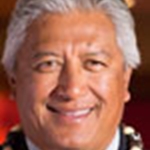
Tua Pittman
Internationally acclaimed as a traditional master navigator, Tua has navigated canoes across the great oceans of our planet from the coastlines of Asia through to the shores of the Americas for more than 30 years, without the use of modern instruments. This Cook Islander, also of New Zealand Maori and Tahitian bloodlines, uses an ancient navigational system based upon careful observation of celestial bodies—sun, moon, and stars—as well as using ocean swells, flight patterns of birds, and other natural markers. Tua’s efforts to adopt and promote the sailing arts of the ancients have been recognized throughout the Pacific. In 2008 he was designated a Pwo navigator on the island of Satawal in Micronesia and inducted by sacred ritual into this rarefied society of master navigators by Grand Elder and Master Navigator Mau Piailug. In addition to earning prominence among traditional voyaging societies, Tua is known throughout Polynesia, Melanesia, and Micronesia for his mentoring of young islanders in the traditional cultures and languages of their ancestors. Tua is a respected chieftain of his island homeland, a dancer, drummer, athlete, and gifted speaker. His lecture topics, accompanied by excellent visual materials, include the origin and migration theory of the Pacific people; ancient traditional voyaging and navigation; traditional voyaging in this modern day; open-air star presentation and identification—navigating Pacific skies; and Pacific Ocean traditions and cultures.
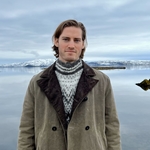
Stefan Thorgeirsson
An avid hiker and outdoor enthusiast with a passion for languages and culture – Stefan is a Viking with a twist. Born in Reykjavik, to a family from the Westfjords of Iceland, Stefan’s upbringing has allowed him to experience the best of both worlds. During most of the wintertime, he lived in Reykjavik and got to know the city. When the summertime came, however, he would go hiking, camping and fishing in the beautiful nature of Iceland. Stefan lived in Japan for one year during his high school studies and speaks fluent Japanese. After high school, he took a year off to explore another part of the world – Costa Rica – where he worked as a volunteer at a wildlife reserve. Stefan got to know the locals and experience the biodiversity of Costa Rica as well as its culture and language. His Spanish is still pretty good. Stefan holds a BSc degree in Industrial Engineering from the University of Iceland as well as a BA Acting degree from Iceland University of the Arts. Right out of university Stefan moved with his family to Japan where they have been living for the past two years. Before joining Lindblad Stefan was working as a tour guide in Iceland and he has been around the island multiple times, both on land and sea.
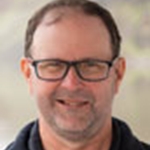
Patrick MacQuarrie
Patrick MacQuarrie grew up on a wheat farm on the Columbia River Basin. In college, he studied engineering, international relations, and geography, getting his PhD in International Water Management. Both Irish and American, Patrick has lived and worked abroad for the last 25 years, is a keen conversationalist and passionate musician. He brings extensive and deep knowledge of river basin systems to Lindblad’s team of experts, having worked on crafting and implementing water sharing agreements with UN-Water, the Environmental Programme (UNEP), the United Nations Economic Commission for Europe (UNECE), the International Union for Conservation of Nature (IUCN), the Mekong River Commission, and conducted research and taught at acclaimed Universities worldwide. Patrick has waded in nearly every meandering river in the world; the Columbia and Colorado river basins in North America, the Amazon and Lake Titicaca basins in South America, the Mekong, Salween, and Irrawaddy, in Southeast Asia and the Murry-Darling in Australia, several basins across Europe and West Asia, multiple basins in the Middle East and North Africa, and intimate knowledge of waterways in Ireland and the British Isles. He now shares his insightful yet personal experience with guests aboard Lindblad’s authentic and memorable voyages.
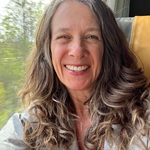
Amy Loewen
After studying anthropology and music at the University of Toronto, Amy promptly left for Japan and found herself teaching English to over 12,000 junior high school students across Kanazawa. This overseas immersion uncovered her fascination with Japanese culture, and kickstarted her lifelong study of Nihongo (Japanese language). After returning to North America, Amy worked as a museum exhibit designer and project manager in Hawai’i and San Francisco before finding her way back to travel and education. Amy has worked both backstage, as an operations manager of educational trips to Japan, and on the front lines, lecturing on expedition ships all over Japan and managing her own tour company. Amy holds her master’s degree in language teaching, and when she’s not in Japan, she teaches English language learners at community colleges in the San Francisco Bay Area. Amy is invited back to Niigata every summer as a visiting faculty member at the International University of Japan, and she also delivers regular training workshops to Japanese tour guides. Amy has a boundless enthusiasm for Japanese culture and food, and her lectures focus on everyday life in Japan and the interplay between language, thought, and behavior. While cultural explorations are her specialty, her curiosity also extends to the natural world. Amy recently moved from Point Reyes National Seashore, home to over 400 species of birds and thousands of Northern elephant seals, to Lassen Volcanic National Park. She shares her new heavenly habitat with her park ranger husband, three cats, boiling mud pots, and four types of volcanoes.
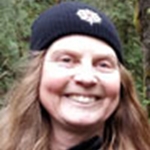
Jacqueline Windh
Jacqueline is a PhD scientist, a best-selling author and photographer, and an elected Fellow of the Royal Canadian Geographical Society. She completed her doctorate studies in structural geology at the University of Western Australia, working as an exploration geologist on three continents before leaving that industry to follow more environmentally friendly pursuits. For the past two decades she has worked as a photojournalist and as a wilderness guide and adventurer, mainly in the Pacific Northwest, South America, and Antarctica. She is author or major contributor to four books. Her photographs and words have been published worldwide, and she has written and presented radio documentaries for both the CBC and the ABC. She is currently working on two books and involved in several adventure film projects. In 2021, Jacqueline was awarded the Sir Christopher Ondaatje Medal for Exploration by the Royal Canadian Geographical Society. A dual Canadian/Australian citizen, she lives on Vancouver Island, British Columbia.
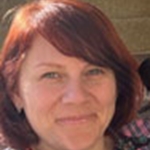
Natalia Slobodina
Natasha was born and raised in the Russian Far East, on the north shore of the Okhotsk Sea. Her archaeologist father made sure her childhood summers were rather unique: rafting on the Kolyma River, backpacking around the Olsky Plateau, and excavating places where people stopped for a break or lived from 200 to 11,000 years ago. Her interest in the adaptations that made living near or above the Arctic Circle possible thousands of years ago (without North Face and Gore-Tex!) led her to University of Alaska Anchorage, where she got her undergraduate degree in Anthropology, and then University of Washington, where she got her MA (Anthropology). Between school years, she assisted the Bureau of Land Management and National Park Service with surveying for unknown archaeological sites and monitoring or excavating the known ones in places like Gates of the Arctic National Park, Yukon-Charley National Park, and Katmai National Park. She focused on the stone tools, trying to discern how and why ancient technologies changed. Natasha lives in The Bay Area of California now and gets out to the Sierra Mountains as much as possible (backpacking in summers and skiing in the winter) because they remind her of the North.
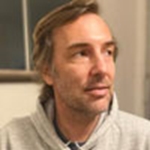
Richard McColl
Richard McColl is a British freelance writer, conflict resolution specialist, holds a PhD in Social Sciences and foreign correspondent based either in the lofty altitudes of Bogotá or in the sweltering lowlands of the garciamarquian where he runs two small guesthouses. His writing and reporting has appeared in some 30 publications worldwide, appears regularly on television and radio shows as a commentator on events in Colombia and he hosts a weekly online radio show called "Colombia Calling". He is currently working on his first novel based on his experiences in Colombia as a hotelier entitled: " The Mompos Project"
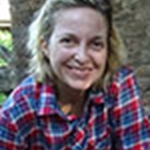
Julia Esteve
Julia Estève got her PhD in History of Religions at the EPHE in Paris. Her research encompasses the spectrum of the different components of the pre-modern Khmer religion for which she uses Archaeological and Epigraphical tools as well as Art History. After teaching for six years at Mahidol University in Thailand, she now devotes herself to her various research projects in Cambodia as well as to the dissemination of the latest discoveries concerning Khmer history and religions to a wider audience.
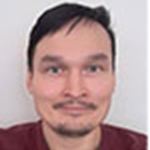
Lars Abelsen
Lars Lennert Abelsen was born in Sisimiut in 1990 where he spent most of his youth growing up. He moved to Aasiaat for a higher education degree in 2012, where he met his wife. Currently they live in Nuuk, where he is studying for his bachelor's degree in Cultural & Society and his wife for a bachelor's degree in elementary education. They have a lovely 9-year-old boy, who is still in elementary school. In between studies, they have traveled in several towns and cities around Greenland in connection with their educations, for family vacations, hunting trips and for sports competitions.
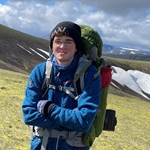
Andreas Gudmundsson Gähwiller
An Icelander and a biologist to the core, Andreas grew up in Reykjavik and has always had a great fascination with the biology and history around him. From a young age, Andreas had a keen interest in the Icelandic sagas and folktales, exploring the locations described therein on numerous hikes and travels all across Iceland, from the birthplaces of heroes such as Snorri Sturluson, to the mythical homes of the elves in the highlands. These days, Andreas is studying the biota and ecology of Icelandic geothermal areas, such as Geysir and the surroundings of the Blue Lagoon, with a focus on ants. This research is conducted under the auspices of the University of Iceland, where Andreas works as a teacher and researcher. His studies on the ecology of ants have in recent years also taken him abroad, to Madagascar, Malaysia, and French Guiana, among other natural paradises. Andreas is part of the Icelandic Air and Mountain Rescue Team which specializes in search and rescue operations by both land and air. Through this training, Andreas has had the opportunity to undergo specialist training in navigation, first aid, swift water and wilderness rescue.
Showing 12 of 19

